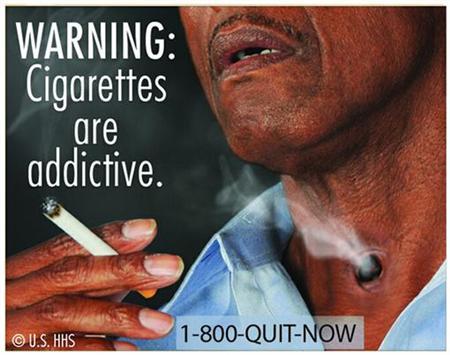The Healthy Flap: March 4, 2013
Posted on Charmaine Jackson lost half her body weight
Charmaine Jackson lost half her body weight
These are my healthy news health headlines for February 21st through March 4th:
- Journaling helps woman lose half her body weight
Charmaine Jackson can tell you what she ate on any date for the past five years.She can tell you how much she exercised, what kind of mood she was in, how much water she drank — even if she watched television while mindlessly munching away.All she has to do is flip through the pages of her 14 journals.
The reason she began her daily record keeping was simple — she wanted to lose weight and keep it off.
It may sound extreme, but it paid off. Since she began keeping journals, Jackson is half the person she used to be — going from 260 to 130 pounds.
“(Journaling has) really helped me get an idea of what my behaviors are, what my patterns are, how I can make change for myself for good,” she said. “You wouldn’t see it unless you look at it over time and you really get a chance to see this worked and why.”
- Exercise, less sitting time, linked to better sleep
Insomniacs looking for a good night’s sleep may want to hit the treadmill, take a walk or play a game of golf or tennis because a new report released on Monday shows exercise promotes good sleep and the more vigorous the workout the better.Just 10 minutes of exercise a day could make a difference in the duration and quality of sleep, the survey by the non-profit National Sleep Foundation showed.“We found that exercise and great sleep go together, hand in hand,” Max Hirshkowitz, a sleep researcher and the chair of the poll task force, said in an interview.
- Doctors report first cure of HIV in a child -For the first time, doctors are reporting that they have cured a child of HIV, the virus that causes AIDS.The landmark finding will help scientists better understand the nature of HIV, doctors say, and could potentially help countless HIV-positive babies in developing countries.
“I’m sort of holding my breath that this child’s virus doesn’t come back in the future,” says Hannah Gay, an associate professor of pediatrics at the University of Mississippi Medical Center, who treated the child, a 2½-year-old Mississippi girl. “I’m certainly very hopeful that it will produce studies that will show us a way to cure other babies in the future.”
- What Housework Has to Do With Waistlines
One reason so many American women are overweight may be that we are vacuuming and doing laundry less often, according to a new study that, while scrupulously even-handed, is likely to stir controversy and emotions.The study, published this month in PLoS One, is a follow-up to an influential 2011 report which used data from the U.S. Bureau of Labor Statistics to determine that, during the past 50 years, most American workers began sitting down on the job. Physical activity at work, such as walking or lifting, almost vanished, according to the data, with workers now spending most of their time seated before a computer or talking on the phone. Consequently, the authors found, the average American worker was burning almost 150 fewer calories daily at work than his or her employed parents had, a change that had materially contributed to the rise in obesity during the same time frame, especially among men, the authors concluded. - Doctor Groups Issue List of Overused Medical Tests
In an effort to change entrenched medical practices, 17 major medical specialty groups recommended on Thursday that doctors greatly reduce their use of 90 widely used but largely unnecessary tests and treatments.This list of “don’ts” builds on 45 recommendations made last April, under a broad initiative by the American Board of Internal Medicine Foundation, in partnership with the magazine Consumer Reports.“As you look through the lists, a lot of these were mea culpas,” said Dr. Eric Topol, chief academic officer of Scripps Health, a health care provider in San Diego. Dr. Topol was not involved in creating the new recommendations. “The literature had supported these recommendations, but until now they were not sanctioned as no-no’s by the professional groups,” he said.
Some of the recommendations reinforce existing guidelines, but others aggressively go after procedures that have little evidence of benefit and may cause harm, yet are still practiced on a daily basis.
For example, the American Society of Echocardiography recommended against using echocardiograms before or during surgery for patients with no history or symptoms of heart disease; doctors routinely perform this test. The Society of Nuclear Medicine and Molecular Imaging urged physicians not to perform routine annual stress testing using a nuclear heart scan after coronary artery surgery. This is also a routine test, and it exposes the patient to radiation equivalent to 2,000 chest X-rays.
- Smoking cessation in old age: Less heart attacks and strokes within five years
Professor Hermann Brenner and colleagues analyzed the data of 8.807 individuals aged between 50 and 74 years using data of Saarland citizens. “We were able to show that the risk of smokers for cardiovascular diseases is more than twice that of non-smokers. However, former smokers are affected at almost the same low rate as people of the same age who never smoked,” says Brenner. “Moreover, smokers are affected at a significantly younger age than individuals who have never smoked or have stopped smoking.” - Study disputes long-term medical savings from bariatric surgery
In the span of 15 years, the number of bariatric surgeries performed in the United States has grown more than 16-fold to roughly 220,000 per year, gaining cachet as a near-panacea for obesity.Despite the daunting price tag, mounting research has boosted hopes that the stomach-stapling operations could reduce the nation’s healthcare bill by weaning patients off the costly drugs and frequent doctor visits that come with chronic obesity-related diseases like diabetes and arthritis.But a new study has found that the surgery does not reduce patients’ medical costs over the six years after they are wheeled out of the operating room.
- The Benefits of Exercising Outdoors
While the allure of the gym – climate-controlled, convenient and predictable – is obvious, especially in winter, emerging science suggests there are benefits to exercising outdoors that can’t be replicated on a treadmill, a recumbent bicycle or a track.You stride differently when running outdoors, for one thing. Generally, studies find, people flex their ankles more when they run outside. They also, at least occasionally, run downhill, a movement that isn’t easily done on a treadmill and that stresses muscles differently than running on flat or uphill terrain. Outdoor exercise tends, too, to be more strenuous than the indoor version. In studies comparing the exertion of running on a treadmill and the exertion of running outside, treadmill runners expended less energy to cover the same distance as those striding across the ground outside, primarily because indoor exercisers face no wind resistance or changes in terrain, no matter how subtle.The same dynamic has been shown to apply to cycling, where wind drag can result in much greater energy demands during 25 miles of outdoor cycling than the same distance on a stationary bike. That means if you have limited time and want to burn as many calories as possible, you should hit the road instead of the gym.



